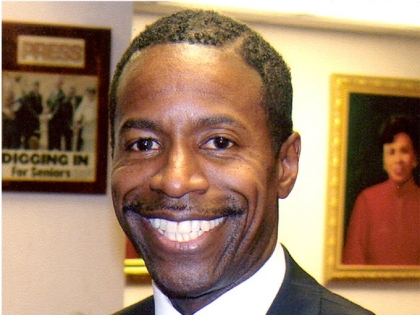
Landmark Brownfields Legislation Receives Final Passage
Malcolm A. Smith
June 23, 2008
ALBANY, NY – June 24, 2008 – While citing some reservations that the measure does not go far enough, Senate Democrats are hailing the final passage of new Brownfields legislation. The reforms adopted in the unanimously passed measure go a long way towards helping to stimulate the upstate economy, clean up the environment and assist developers with tax credits to encourage new building on sites once thought to be vast wastelands.
“Jobs and housing are key components to redeveloping the upstate economy,” said Senator Antoine Thompson (D-Buffalo/Niagara Falls), the Ranking member of the Senate Environmental Conservation Committee. “This legislation will help in the mission to assist communities in western New York as well as districts across New York state. The prospect of turning urban eyesores into new, shovel-ready sites is exciting because this agreement protects the environment while, at the same time, helping businesses by reducing development, construction and cleanup costs as well as offering new opportunities.”
The agreed upon legislation (S. 8717) provides:
- Up to half the cost of the site cleanup
- Encourages manufacturing projects up to $45 million in tax credits
- Reduces the red tape to access the benefits of the program
- Allows certain previous applications for Brownfield cleanup to be eligible for the tax credits
The current law needed to be expanded to provide greater transparency on what companies became eligible for the tax credits. These reforms would allow all previously underserved, blighted areas in inner cities across the state to receive badly needed aid and attention. Understanding where the legislation failed was the impetus for the reform legislation.
Senator Andrea Stewart-Cousins (D-Yonkers), a member of the Commerce, Economic Development and Small Business Committee said: “Those of us who have important revitalization projects going on in our districts, those of us who have had commitments by developers based on the tax credits, were very, very concerned that suddenly the game would be changed midstream. This measure allows for many of the projects in Yonkers, Tarrytown and across the state that have already been in the process to continue in that process and also gives the added impetus so that we will be able to reclaim those Brownfields that could indeed be revitalized so that we could use them so the economic prosperity continues.”
Senate Democratic Leader Malcolm A. Smith (D-St. Albans) said: “I was pleased that the reform legislation will not only help to create a new economic spark in many communities but it will also return accountability to a program that sorely lacked the strict guidelines programs such as this one desperately needed. Accountability to the state taxpayers is a paramount concern when it comes to how Brownfields grant dollars are spent.”
One of the streamlining measures in this bill moves the administration of the Brownfield Opportunity Area (BOA) program to the Department of State, eliminating current dual-agency requirements in reviewing and expediting projects. The Department of State has experience and staff to facilitate and carry out planning processes, including smart growth planning, waterfront redevelopment, and other urban planning work
The Governor is expected to sign this agreed upon legislation.
Share this Article or Press Release
Newsroom
Go to NewsroomRIP Ruby Dee – 1922-2014
July 11, 2014

Remembering Dora Young - Street Renaming
July 11, 2014

